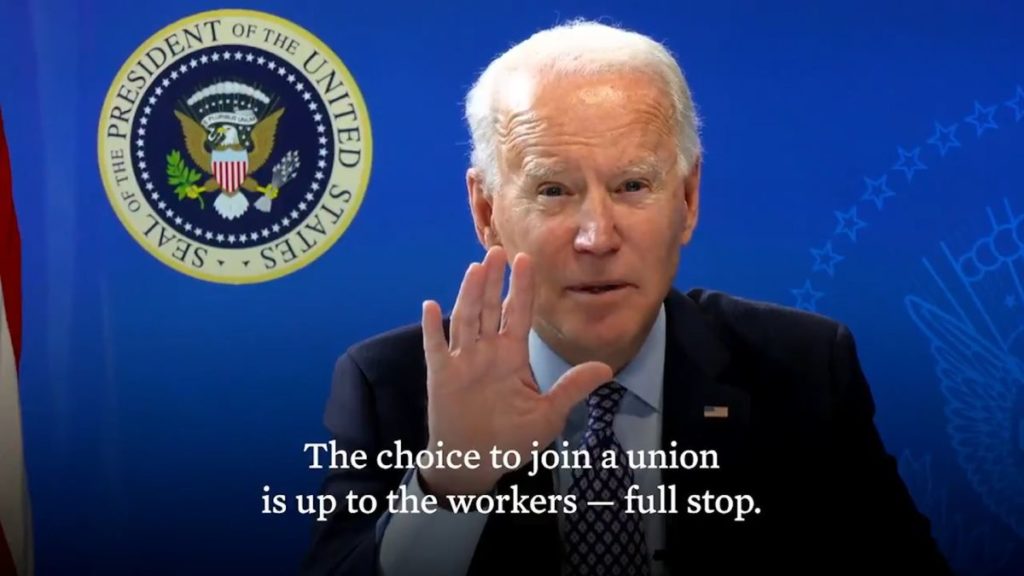More on the Amazon Loss

While I bask in sharing the same op-ed page in the print version of the Times as David Brooks (maybe I should teach a course on humility at Yale!), there are many other very smart takes on the Amazon loss. Probably the most compelling is Rich Yeselson at Jacobin. He points out in the right publication given its now long tradition of wanting a working class movement that just doesn’t exist in America that what the nation has is a large class of labor intellectuals that are pretty well disconnected from actual workers.
To paraphrase what W. H. Auden famously wrote about Sigmund Freud, Amazon is no more a corporation now but a whole climate of opinion. Jeff Bezos, its founder and CEO, is the Andrew Carnegie of our time, the richest man in the world. A 2018 survey listed Amazon as the second-most trusted institution in the country (after the military).
In the United States in 2021, no union fight could have had more weight on the level of production and cultural reproduction than one against Amazon. But, as it happens, the weight was mostly on the level of cultural reproduction, not production. And that is a problem.
The coverage — from the mainstream outlets like the New York Times to left media — has been extraordinary, not merely centered in Bessemer but about Amazon writ large. But this is what I have called “laborism without labor.” The intellectual labor infrastructure of youngish urban leftists working in media and academia and education is ahead of the overall labor movement itself. Organizing in those sections is robust. The elite institutions of high liberalism, like the New Yorker and Harvard University, are among the most militant workplaces in America.
This is a good thing, of course. But it’s not a mass base. Although union fights take place every day in this large country in disparate workplaces, the decline in union density continues even as labor scholarship and advocacy in books, articles, and social media grow more compelling.
I mean, I’m certainly part of that laborism world, even as I am on the executive committee of my own union. But while I reject any idea that “real work” is blue-collar work in factories, the reality is that higher education may indeed be an area that is seeing a lot of labor organizing today, but not only is it not working-class organizing, it’s not going to organize the working-class either. So what to do? The answer is to actually learn lessons from our failures.
In his enduring book Prisoners of the American Dream, Mike Davis wrote of the importance of the “sedimented historical experiences of the working class as they influenced and circumscribed its capacities for development in succeeding periods.” Davis continued: “Each generational defeat of the American labor movement disarmed it in some vital respect before the challenges and battles of the following period.”
Davis was discussing the aggregated trajectory of large labor epochs throughout the nineteenth and twentieth centuries. But discrete political and labor losses symbolized those larger generational defeats within the political economy — whether in 1877, 1886, 1894, 1919, or even the truncated victories of the CIO era and the real but stolid stasis of the postwar, high-water mark in union density.
The Bessemer debacle is a discrete defeat. But to invert Davis for a moment, Bessemer — more than the two auto plant defeats in recent years and perhaps more than the hopeful militancy recently in health care and education — might do more to buttress rather than disarm labor for the necessary fights to come. This time, may defeat lead to wisdom and determination, and may all of labor catch up to the ideological advances of laborism.
Again, read the whole, etc.


